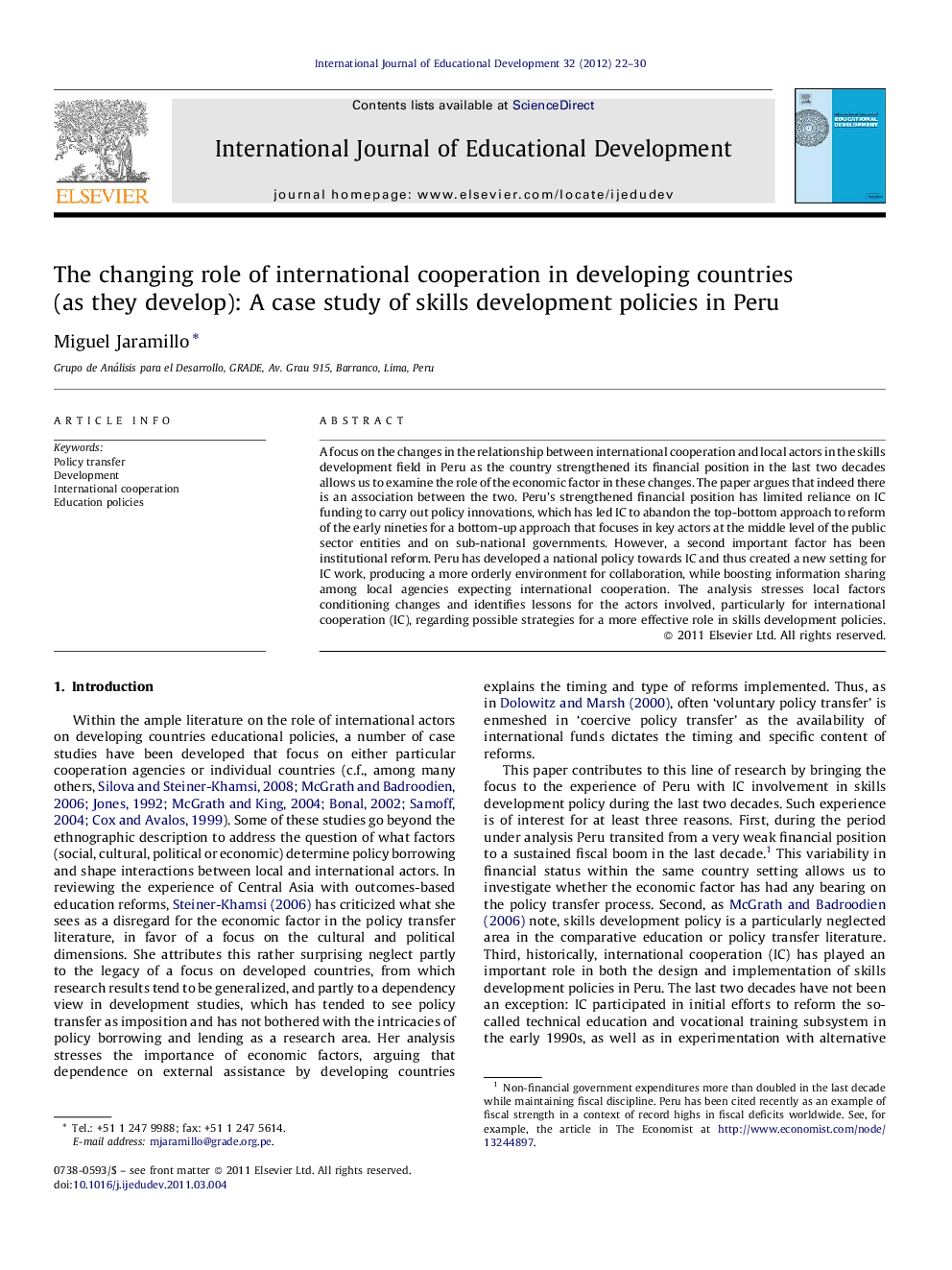| Article ID | Journal | Published Year | Pages | File Type |
|---|---|---|---|---|
| 356480 | International Journal of Educational Development | 2012 | 9 Pages |
A focus on the changes in the relationship between international cooperation and local actors in the skills development field in Peru as the country strengthened its financial position in the last two decades allows us to examine the role of the economic factor in these changes. The paper argues that indeed there is an association between the two. Peru's strengthened financial position has limited reliance on IC funding to carry out policy innovations, which has led IC to abandon the top-bottom approach to reform of the early nineties for a bottom-up approach that focuses in key actors at the middle level of the public sector entities and on sub-national governments. However, a second important factor has been institutional reform. Peru has developed a national policy towards IC and thus created a new setting for IC work, producing a more orderly environment for collaboration, while boosting information sharing among local agencies expecting international cooperation. The analysis stresses local factors conditioning changes and identifies lessons for the actors involved, particularly for international cooperation (IC), regarding possible strategies for a more effective role in skills development policies.
► Changes in a country's financial position may affect relations with IC. ► In Peru financial strengthening led IC to abandon top-bottom approach to reform. ► Analysis stresses local factors conditioning changes. ► Lessons for the actors involved are identified.
